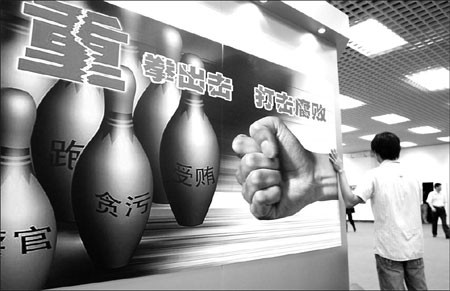
- Bloomberg says: "Being hard hit by Chinese President Xi Jinping's corruption crackdown hasn't hurt Hainan's economy...Hainan weathered significant scrutiny over the first three years of Xi's campaign given its tiny output of $56 billion, with three dozen Communist Party officials probed, according to a Bloomberg Intelligence analysis. Its growth slowed 1.3 percentage points amid the shake-up, less than half the average decrease nationwide of 3 percent. Similar trends played out across much of China since Xi launched his unprecedented war on corruption in late 2012, the analysis found. Some regions with a high number of senior officials investigated, such as Guangdong and Jiangsu, saw more resilient growth between 2013 and 2015...Bloomberg Intelligence analysis suggests corruption acted as an overall drag on growth."
The Straits Times reports that China is reportedly planning to halve the number of Taiwan-bound tourists in three stages this year as cross-strait relations continue to sour after the inauguration of the island's new President, Taiwanese media reported yesterday. The total number of tourist arrivals from mainland China is estimated to fall to under two million this year, the United Evening News reported, down from the 4.1 million recorded last year by Taiwan's Tourism Bureau...Chinese tourists are estimated to have contributed more than NT$230 billion (S$9.7 billion) to Taiwan's economy last year, the island's China Times reported. China reportedly started to curtail tourism in January after Ms Tsai Ing-wen from pro-independence Democratic Progressive Party was elected President.
- Reuters reports that Germany and China have agreed to set up an "early warning system" to avoid problems for German non-governmental organizations from a new Chinese law that restricts such groups, German Chancellor Angela Merkel said on Sunday. Merkel told reporters that she and Chinese Premier Li Keqiang had agreed to stay in close touch about potential issues once the new law goes into effect on Jan. 1. The law grants broad powers to Chinese police to question NGO workers, monitor their finances, regulate their work and shut down offices. German rights groups and political foundations have said they fear that the law will hamper their work.
- 2016-06-10 South Korea Sends Military Boats to Repel Chinese Fishermen
- 2016-06-09 Japan Protests to China After Spotting Chinese Warship Off Disputed Islands
- 2016-06-08 U.S. Accuses Chinese Jet of Flying Too Close to American Plane
- 2016-06-07 U.S. presses China to reduce barriers for foreign business
- 2016-06-06 China to submit 'negative list' for U.S. investment treaty talks next week
- 2016-06-05 Maritime Spat Simmers as U.S., China Talk
- 2016-06-03 U.S. to Urge China to Put More Pressure on North Korea
- 2016-06-02 China tells U.S., don't let allies set South China Sea policy
- 2016-06-01 President Trump would hand the world to China
- 2016-05-31 China to 'pressure' U.S. on maritime issues, paper says
- Reuters US homeland security chief cancels China trip after Orlando shooting
- Reuters BRIEF-China Life Insurance to invest more than $500 million in Didi Chuxing- CNBC, citing DJ
- Reuters Chinese winner Wu makes European Tour history in Austria
- Reuters China's yuan trade system to open branches in London, New York
- in.reuters.com Blast from "self-made" explosive injures five in Shanghai airport
- Bloomberg New Taiwan Leader Rejects Predecessor's Bid to Visit Hong Kong
- Reuters China January-May FDI up 3.8 percent year-on-year
- The Telegraph China uncorks new vintage of world-class wine with £175-a-bottle red
- Reuters China says more talks needed to build consensus on nuclear export club
- Reuters China official says MSCI should not wait to add Chinese shares to index
- Financial Times IMF sounds warning on China's corporate debt
- New York Times Sparse Chinese Presence in Crowd at Zou's US Debut
- Bloomberg Hong Kong Reign as China's Wall Street Has Never Been So Fragile
- Wall Street Journal Chinese Lessons From ESPN and Disney
- The Diplomat EU's Strategic Balance Between the G7 and the G20
- Financial Times China wobble makes investors cautious
- Forbes Will Trump Target Disney For Making Movies In China?
- Forbes America Should Treat China As A Regional, Not A Global Player
- Forbes Can China's Huawei Beat Apple In India's Smartphone Market?
